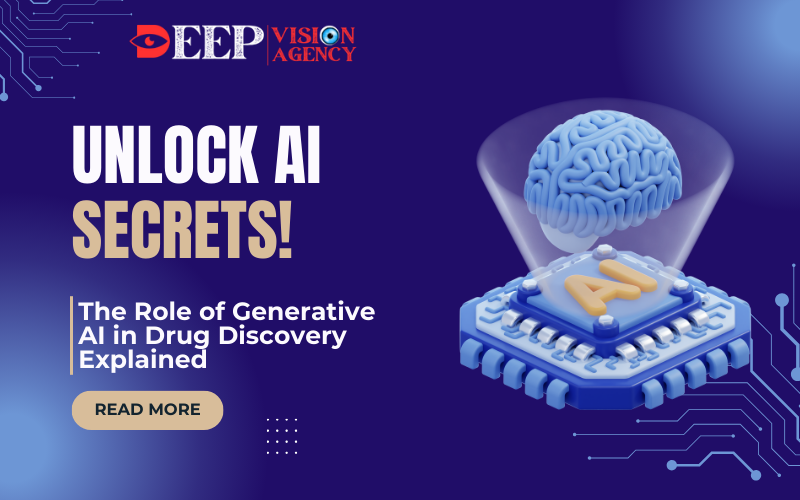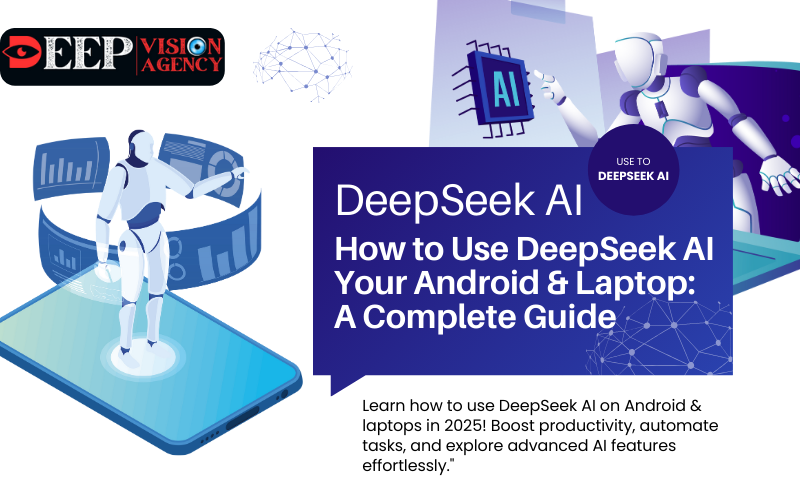What is the Role of Generative AI in Drug Discovery?
Introduction
Drug discovery is one of the most complex and time-intensive processes in the pharmaceutical industry. It often takes years of research and billions of dollars to bring a new drug to market. This process faces numerous challenges, including identifying effective drug candidates, high failure rates, and escalating costs. Enter generative AI—a game-changing technology revolutionizing the pharmaceutical industry.
What is Generative AI?
Generative AI refers to artificial intelligence systems that can create new content, such as text, images, or molecular structures, by learning from vast datasets. These systems rely on advanced machine learning techniques, such as neural networks, to generate innovative solutions. In the context of drug discovery, generative AI focuses on designing novel molecules, predicting their properties, and optimizing drug candidates.
The Drug Discovery Process
Traditionally, drug discovery involves identifying a biological target, such as a protein, and screening thousands of compounds to find one that interacts effectively with it. Once a potential candidate is found, it undergoes extensive testing in preclinical and clinical trials. This process is not only lengthy but also fraught with inefficiencies and high attrition rates.
Role of Generative AI in Drug Discovery
AI-Driven Drug Design and Molecular Modeling
Generative AI leverages deep learning models to design molecules from scratch. By analyzing biological data and chemical structures, AI systems can predict which molecular configurations are likely to be effective as drugs.
Identification of Potential Drug Candidates
Instead of sifting through millions of compounds manually, generative AI can predict the most promising candidates in a fraction of the time. This accelerates the initial stages of drug discovery.
Benefits of Generative AI in Drug Discovery
Speed and Efficiency
Generative AI significantly reduces the time needed to identify drug candidates. What traditionally took years can now be accomplished in weeks or months.
Cost-Effectiveness
AI-driven drug discovery minimizes costs by reducing the need for labor-intensive experiments and resource-heavy clinical trials.
Precision and Reduced Error Rates
Generative AI provides highly accurate predictions, reducing the likelihood of costly errors during the drug development process.
How Generative AI Identifies New Molecules
Generative AI uses deep learning models trained on chemical and biological datasets. These models can design molecules with desired properties and predict their interactions with biological targets. This ensures that only viable candidates move forward in the pipeline.
Application of Generative AI in Drug Screening
Virtual Screening of Compound Libraries
AI can virtually screen compound libraries, identifying those with the highest likelihood of success. This eliminates the need for physical testing of every compound.
Optimizing Pharmacokinetics and Pharmacodynamics
Generative AI can predict and optimize how a drug is absorbed, distributed, metabolized, and excreted in the body, ensuring better efficacy and safety profiles.
Personalization in Medicine
Generative AI is paving the way for personalized medicine by designing therapies tailored to individual genetic and biological profiles. This approach ensures better outcomes and minimizes adverse effects.
Notable Success Stories
AI-developed drugs are already making headlines. For example, Exscientia, a company specializing in AI-driven drug discovery, has developed drug candidates that are undergoing clinical trials. Partnerships between pharmaceutical giants like Pfizer and AI firms further highlight the potential of this technology.
Challenges and Limitations
Ethical Concerns
The use of AI in drug discovery raises questions about accountability and decision-making transparency.
Data Privacy and Security Issues
AI systems require access to vast amounts of data, often raising concerns about patient privacy and data protection.
Dependence on High-Quality Data
The effectiveness of generative AI depends on the quality of the data it is trained on. Poor-quality or biased data can lead to flawed predictions.
Regulatory Hurdles
Regulatory frameworks for AI-developed drugs are still evolving. Ensuring compliance with these standards is critical for widespread adoption.
The Future of Generative AI in Drug Discovery
Emerging Trends
With advancements in AI and machine learning, the future of drug discovery looks promising. Technologies like quantum computing may further enhance AI’s capabilities.
Collaborative Efforts
Collaboration between AI startups, pharmaceutical companies, and academic institutions will be key to unlocking the full potential of generative AI.
Conclusion
Generative AI is transforming the landscape of drug discovery, offering faster, more efficient, and cost-effective solutions. While challenges remain, the potential for AI to revolutionize healthcare and bring life-saving treatments to market is undeniable.
FAQs
- What is generative AI, and how does it work in drug discovery?
Generative AI uses machine learning models to design molecules, predict their properties, and identify potential drug candidates. - How does generative AI accelerate the drug discovery process?
By analyzing vast datasets and predicting outcomes, generative AI streamlines processes like molecule design and virtual screening, saving time and resources. - Are there any examples of drugs developed using AI?
Yes, companies like Exscientia and Insilico Medicine have developed AI-designed drugs that are currently in clinical trials. - What are the main challenges faced in implementing AI in drug discovery?
Challenges include ethical concerns, data privacy issues, and the need for high-quality datasets and regulatory compliance. - How will generative AI shape the future of personalized medicine?
Generative AI will enable the design of tailored treatments based on individual genetic and biological profiles, ensuring better patient outcomes.
You may also like: Digital Marketing, Best Digital Marketing Services, SEO Services, Website Design and Development, Pay-Per-Click (PPC) Advertising, Social Media Marketing (SMM), E-Commerce Services
Follow Us: Quora, Facebook, Instagram, Twitter





